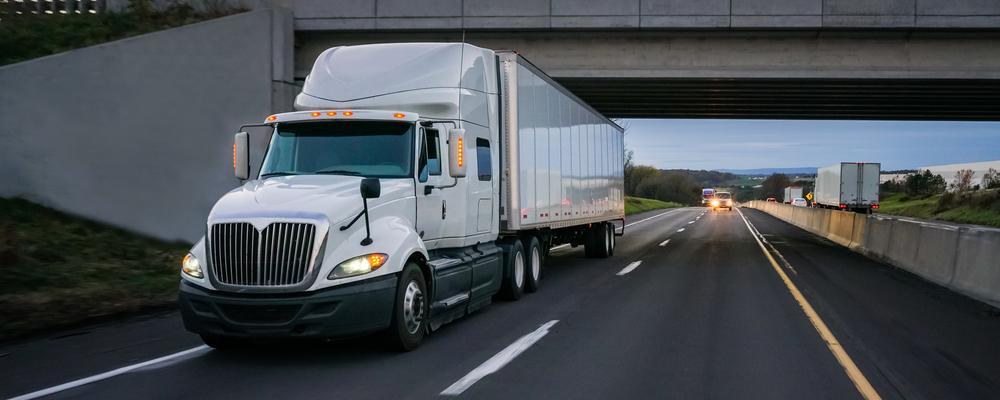Grand Rapids, MI Truck Accident Lawyer

Attorney for Injury Victims of Speeding Semi Truck Drivers in Kent County and Ottawa County
In Michigan, the maximum legal speed limit for a semi-truck on the freeway is 65 miles per hour, regardless of the posted speed limit for other motorists. Even at this speed, a loaded truck can require more than 250 feet to come to a complete stop, and as trucks begin to surpass the speed limit, they become increasingly difficult to stop and control safely. This leads to greater potential for truck accidents resulting in severe injuries, especially when factoring in the momentum of a fast-moving vehicle weighing thousands of pounds.
If you or someone in your family has been the victim of an accident caused by a speeding truck driver, you need an attorney who understands the severity of your case and can help you obtain full compensation. At John D. Tallman, PLC, we have almost 40 years of experience representing West Michigan clients in personal injury and wrongful death cases, and we want to serve you with the personal care you need. We understand that you may be unable to afford high up-front attorney fees, so we only require compensation after achieving a successful outcome for you.
Establishing Negligence in a Speeding Truck Accident
Speed limits are established to preserve the safety of the roadways, and therefore exceeding them can be considered a form of negligence because of the danger it poses. However, in order to establish liability for the purposes of a personal injury claim, you must be able to demonstrate that the other driver's speeding was the cause of the accident and the injuries you suffered as a result. One example of an accident caused by speeding could be a rear-end collision in which the truck driver was traveling too fast to decelerate in time to avoid the crash. Police reports of the accident, video footage, and expert and eyewitness testimony can all help you demonstrate that the truck was traveling at dangerous speeds.
Because semi-truck speeds are subject to additional restrictions under Michigan law, truck drivers may be found negligent due to speeding in situations where other drivers would not. Truck drivers can also be found negligent for traveling at unsafe speeds for the current road conditions, perhaps due to weather or a construction zone, even if they are below the usual 65 mph speed limit or the posted limit for the area.
Speeding is sometimes accompanied by other negligent behavior on the part of the truck driver, like drunk driving, drowsy driving, road rage, or distracted driving, and evidence of any of these factors can bolster your claim for compensation. When truck drivers speed due to pressure from a trucking company to complete a shipment on time, or when a speeding accident involves shifting cargo or failed brakes or other equipment, you may be able to seek compensation from additional liable parties including loading and maintenance crews.
Keep in mind that any speeding on your part can be considered comparative negligence, which can reduce your ability to obtain compensation from the other driver, depending on the portion of the responsibility you bear for the accident. Making a habit of traveling at safe speeds can protect you, your passengers, and other drivers, and give you the best chance at receiving full compensation if you do get injured.
Quality Representation from a Kent County Truck Accident Attorney
When you are injured in a truck accident, after getting prompt medical attention and collecting any evidence you can from the scene, you should next consider hiring a personal injury attorney as soon as possible. As your lawyer, we can help you preserve any evidence you already have and seek additional evidence to strengthen your claim. We can also advise you as to the damages for which you can seek recovery and represent you in settlement negotiations and litigation with the liable parties and their insurance companies to fight for a fair resolution. We know that severe injuries often require greater compensation, and we have experience helping our clients achieve settlements and verdicts in the million-dollar range.
Contact Our Holland and West Michigan Law Firm Today
For a free consultation with a personal injury attorney who has a track record of achieving results for his clients, contact us any time at 616-361-8850. We represent clients throughout the greater Grand Rapids area, including in Holland, Grand Haven, Muskegon, Kent County, Ottawa County, and Muskegon County.








